MORINGA TEA INTRO
Skip Ahead To:
Moringa Tea is a favorite herbal tea to those overseas, but is slowly beginning to catch on in the United States. You can tell by the name that the main ingredient in the tea is Moringa leaves. The moringa leaves are harvested from the moringa tree (Moringa oleifera). The tree is often called the “Miracle Tree” due to its multiple miracle like benefits to the consumer. The moringa tree produces Ben oil which is very versatile and used in several products from food to beauty. Other parts besides the oil of the tree can be eaten, used for cooking, used to purify water, or to reclaim the soil. The leaves can also be used to make herbal teas which adds to the versatility of the tree. Due to this versatility the moringa plant is considered a super plant. Learn more about moringa Tea and leave with the basics !
Before Consuming Morninga Tea
First, as an Amazon Associate, I earn from qualifying purchases.
I highly recommend speaking with a healthcare professional prior to consuming any forms of herbal tea including moringa tea. moringa tea is safe to drink in moderation, like many other drinks. To avoid potential health problems I suggest getting consultation before drinking moringa tea.
MORINGA TEA ULTIMATE GUIDE
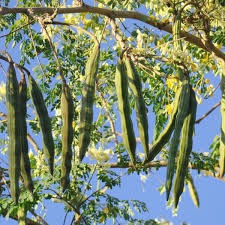
Please note: This post contains affiliate links. An affiliate link means that we may earn advertising/referral fees if you make a purchase through our links.
This Ultimate Guide for Moringa Tea includes all of the information you need to know about moringa tea. Below you you will learn the basic info, history, benefits, recipes, and side effects of moringa tea.
Moringa Tea Plant Info
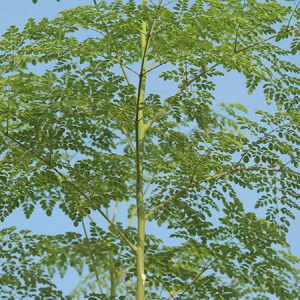
The genus Moringa is an average size group that consists of 13 different species of plants. Some of them are very large, but some can be relatively short. Moringa oleifera produces leaves that are then used to make moringa tea. The word moringa is actually based off the Tamil(India language) word for drumstick. This could be a result of the thin pointed shape of the seed pods . The tree is often bought because of the fast pace at which it grows to full size. The average height is around 35′, but it can sometimes grow to 40+ feet. This growth is perhaps a result of the long skinny branches. It grows so quickly that the branches are cut back every year to keep the leaves and seeds close to the harvester.
Moringa Tree Flowers and Seeds
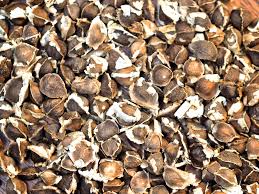
6 months after the moringa tree is planted, the tree will normally begin producing flowers. However in tropical climates the tree may flower year-round. In the cooler areas the tree follows the usual flowering patterns that you would expect and flower only around spring. Depending on the age, seed pods are green or brown. Each pod will hold roughly 10 seeds that are 1/2 in diameter. The seeds have an interesting wing-like structure attached to them to aid them to glide far away and grow.
Moringa Tree Footprint
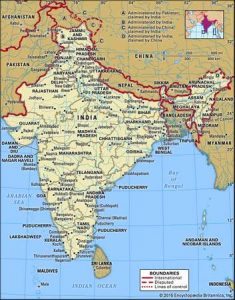
India is the largest moringa cultivator, this is due to the fact that the moringa tree flourishes in India. However, it is also found in many tropical, subtropical, and semiarid areas. Thailand, Philippines, and Indonesia also harvest the fruits and leaves from the trees. The two latter countries specialize in gathering ingredients from the moringa tree for tea and culinary purposes. The moringa tree also grows in most of South America and the Caribbean.
Places with erosion problems are very welcome to the idea of having moringa trees in their area. This is because it can survive in very dry, unforgiving environments. It is heat and drought tolerant and prefers sandy or loose soil with good drainage. If the tree does not have soil with good drainage the tree will suffer and the roots will rot. Haiti began planting the moringa trees to help with soil erosion that has been cause by years and years of strong winds.
To produce the leaves and oils for the United States, commercial farmers in Hawaii have been planting moringa trees.
Moringa Focus and Awards
The many uses of this plant has made it very desirable for people all over the world. It is cheap, fairly easy to grow, and produces many valuable resources. It is to be noted that every part of the tree can be used to prepare products that are edible. In 2008, the moringa tree was actually awarded the 2008 Plant of the Year by the NIH (National Institute of Health). The NIH released a statement giving the cause of the win to the plant’s “potential to help reverse multiple major environmental problems and provide for many unmet human needs.”
Moringa Tea History/General Facts

The history begins in the place that the moringa tree thrives, India. Due to the many medical benefits of consuming the plant, it has been in the diets of many people for thousands of years. Many Asian, Indian, and West African cultures drank the moringa tea that was produced from the plant’s leaves.
The major civilizations including Greeks, Romans, and Egyptians consumed the tea and also drew out oil from the seeds for culinary and cosmetic purposes.
Moringa Tea played a large role in history. The infamous Mauryan Emperial Army of India regularly consumed Moringa Tea to gain strength, power, and stamina. This made other forces fear them.
Moringa Tea Benefits

So you know the oil and leaves are very versatile and healthy, but every part of the moringa tree possesses some kind of health perk. The leaves contain many vitamins and nutrients and are the main ingredient when making moringa tea. The number of health benefits of moringa tea are too vast and impossible to fit all of them in this post. Because of this, I’ve included some of the most important Moringa Tea benefits below that you need to know :
- Antioxidant – A 2014 study found that Moringa Tea contains antioxidant compounds that fight free radicals. These essential amino acids boost immune health and fight many diseases.
- Anti-inflammatory – Moringa is another herbal tea that has anti-inflammatory properties. This can help combat painful swelling in joints plus hands and feet. It can be especially beneficial for people with arthritis.
- Antibacterial – The moringa leaves may be able to serve antibacterial purposes. A popular moringa study recorded that Moringa Tea contains thiocarbamates that are bio-active against multi-drug resistant species.
- Hormones – A moringa study researched how the tea affects menopausal women, and it discovered that moringa leaves have therapeutic potential for the prevention of complications due to hormonal variations.
- Libido – This powerful herbal tea is often consumed to boost libido for bith men and women. It actually has been regarded and consumed as an aphrodisiac for hundreds of years.
- Cancer – Moringa needs to be researched in greater detail to determine all of the benefits for cancer patients. A general study stated that a moringa solution was possibly able to improve the prognosis for individuals with neuroblastoma. The tea also contains lectin which has been studied to combat melanoma tumors. There are other early studies that have documented moringa as a promising method to help with other forms of cancer as well.
- Digestion – Moringa tea may help treat or prevent stomach ulcers, and other digestive issues. This includes a reduction of constipation and bloating from fluid retention. An animal study documented its effectiveness against aspirin-induced ulcers.
- Menstrual Cramps – Moringa leaf tea has traditionally been consumed by women to reduce cramps and bloating during the menstrual cycle.
- Brain – Moringa leaves have been consumed for centuries to improve mental clarity and boost cognition and energy. Current studies are also researching the impact on Alzheimer’s disease.
- Diabetes & Heart Health – Moringa tea has been studied and shown effective at reducing reducing lipid and glucose levels. High lipid and glucose levels lead to an increased risk of diabetes and heart disease.
- Liver – Moringa Tea naturally contains polyphenols. These compounds help fight against liver toxicity and potential liver damage. Research documented Moringa has restored liver enzymes to normal levels. Another animal study recorded that moringa may protect the liver against hepatocellular cancer. Additional research needs to be completed to determine all of the liver benefits of moringa herbal tea.
Moringa Tea Nutrients
Many herbal teas contain high levels of beneficial nutrients, but moringa is on a whole new level of healthy. Moringa tea contains many vitamins, minerals, and beneficial compounds that are uncommon in other plants. Moringa contains compounds from vitamin A to zinc, it even has important amino acids! One study stated that Moringa is a “sustainable alternative for socially neglected population.” The trees are easy to grow and provide many health benefits for impoverished individuals. Although steeping the leaves reduces some of the nutritional value, lots of the nutrition remains in the plant, making it perfect for people trying not to become a victim of malnutrition.
Moringa Tea Flavor
It is important to remember that the sense of taste and smell varies from individual to individual. Moringa tea was explained to have an “earthy” taste. This is common in many teas that have leaves as the main ingredient. Sweeteners are also recommended with this tea because it is also said to be bitter.
Moringa Tea Recipe

This is a delightful Moringa Tea Recipe that will keep your guests coming back for more! It’s fairly simple to prepare and is delicious served hot or cold. Although, I drink the tea year-round I prefer it cold in the summer season. The rest of the year I drink it at a warmer temperature. This recipe requires crushed moringa leaf, I will include a link to my favorite brand below.
Ingredients (2 Servings)
- Crushed Moringa Leaf: 4 tablespoons (see recommended brand below)
- 16 ounces of warm water
- Fresh Ginger Root: 2-3 thin slices
- Lemon Juice: 1 tablespoon (I prefer freshly squeezed)
- Honey: 2 tablespoons
- Sugar: 3 tablespoons (additional to taste)
Instructions
- Pour water into herbal teapot and bring to a low boil. Remove from heat and carefully add the remaining ingredients to the infuser section of your teapot (lack of infuser will require straining debris before serving).
- Place back on low heat and steep for 15 minutes.
- Remove from heat and allow to cool for a few minutes.
For Hot Tea:
- Pour tea into serving teacups. If you don’t have an infuser, you should carefully pour the tea through a strainer into your teacups. Stir in additional sugar to taste.
For Iced Tea:
- Allow to cool for an additional 20 minutes. Pour into medium pitcher (utilize a strainer to remove debris if necessary) and chill for an additional 2 hours.
- Serve chilled tea in serving cups on ice. Add a slice of lemon for each cup and stir in additional sugar to taste.
I hope that you enjoy this Moringa Tea Recipe. I suggest customizing this recipe to fit your personal taste.
Moringa Tea Side Effects
Moringa Tea, when consumed in moderation, rarely has negative side effects. As a result, it is generally considered to be safe to consume on a fairly regular basis. I have included some of the main Moringa Tea side effects that have been reported below.
- Prescription Meds – Make sure to speak with your healthcare provider prior to consuming Moringa Tea. Avoid consuming moringa leaf tea if you are currently prescribed drugs that are substrates of Cytochrome P450.
- Interaction with Sitagliptin– Avoid consuming moringa if you are currently utilizing Sitagliptin (antidiabetic drug). It can cause an antihyperglycemic reaction which can cause blood sugar to drop to dangerous levels.
- Pregnancy – Researchers are still unsure about how moringa interacts with a pregnancy. The moringa bark may cause complications, and it is best to avoid consuming all types of herbal tea if you are pregnant, unless you are advised differently by your doctor.
- Breast Feeding – Breastfeeding mothers pass many of the compounds that they consume to their babies. Moringa leaf consumption has not been studied in babies, so it is best to avoid consuming unless your doctor has approved it.
- Blood Pressure – Some of the active compounds in moringa have been shown to reduce blood pressure. It is best to avoid consuming if you currently have low blood pressure or wide variations in blood pressure.
- Heart Rate – Consuming large amounts of Moringa Tea can lower blood pressure and reduce heart rate. This can be dangerous for people with heart issues.
- Fertility – Abnormally high amounts of moringa may cause issues for women attempting to become pregnant. Do not consume moringa if you are attempting to become pregnant.
The Best Moringa Tea
Moringa tea is far from being difficult to find due to its rise in popularity in the United States. I personally prefer to drink tea made from loose leaves rather than from tea bags for several reasons. The primary reasons include freshness, flavor, and nutrition. I suggest purchasing herbal tea online due to price, convenience, product returns, etc. Below I have provided some of my favorite moringa teas.
Loose Leaf Moringa Tea
(Commissions Earned)
Unlike moringa tea in bags, loose leaf is much more difficult to find. Fortunately, there are still brands out there that sell this product. This brand is Moringa Energy Tea LLC, and they specialize in selling this particular loose leaf tea. This is a relatively new brand of loose leaf herbal tea, but it has quickly become my “go-to.” It is USDA certified organic, and it provides a 30 day guarantee. If you are not 100% satisfied with this tea, you can return it within 30 days for a full refund.
Moringa Tea Bags
(Commissions Earned)
I personally prefer loose leaf moringa tea, but this is a good brand if you wish to buy moringa tea bags. Preparing these tea bags is much easier and less time consuming than consuming crushed leaf tea. This package contains 60 bags for a good price.
MORINGA TEA CONCLUSION
Moringa tea is a herbal tea that utilizes leaves from the common moringa tree (Moringa oleifera). The moringa leaves pass on their powerful nutrients to individuals that consume this tea. I hope that this post has helped educate you about the Moringa plant, and I hope it has convinced you to consider trying Moringa Tea. This post contained a lot of information about moringa tea. If you still have questions please reach out and contact me. I love speaking with the HTH readers!
Moringa Tea Comments
Have you tried Moringa Tea? Do you enjoy it? What do you like or dislike about it? Please share your personal perspective with the HTH Community. Thanks for helping this website grow as a valuable resource!
HerbalTeaHour.com is an herbal tea community that truly values transparency and disclosures. We want to be very clear about one thing. In addition to being herbal tea enthusiasts, we do participate in the Amazon Affiliate program. As an Amazon Associate we earn from qualifying purchases.
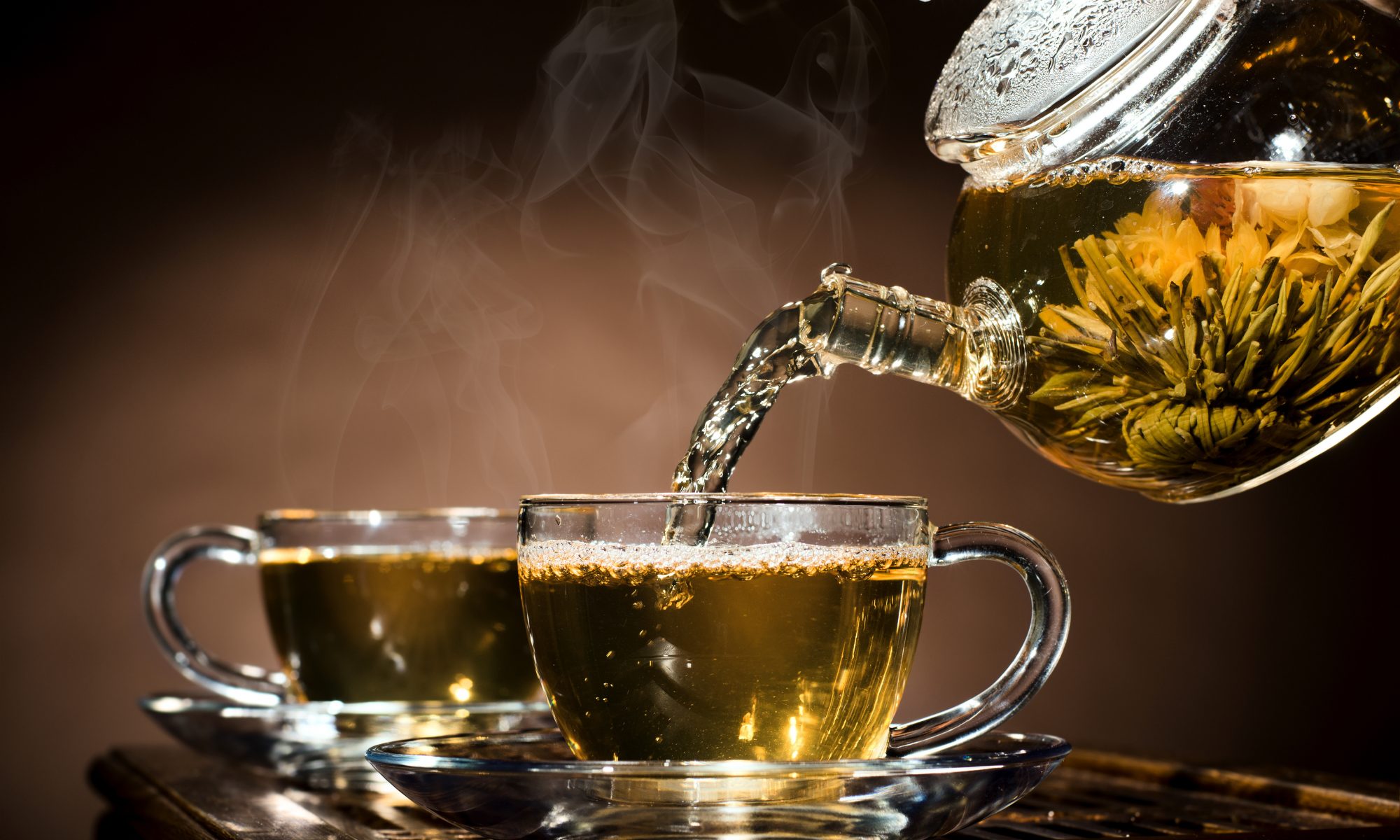
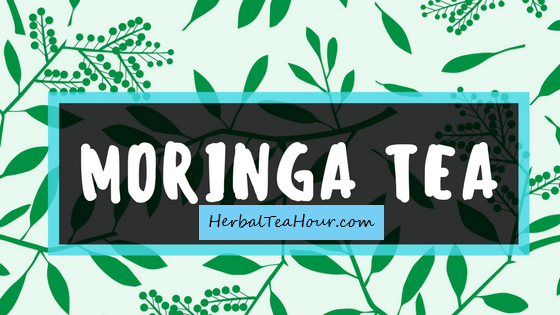


Is it just me, or does Moringa look like green beans? Thanks for the post, Mr. Poppy! You’re expanding my horizons, one tea at a time, lol.
You’re not alone, I’ve had others compare the appearance as well. Thanks for the comment!